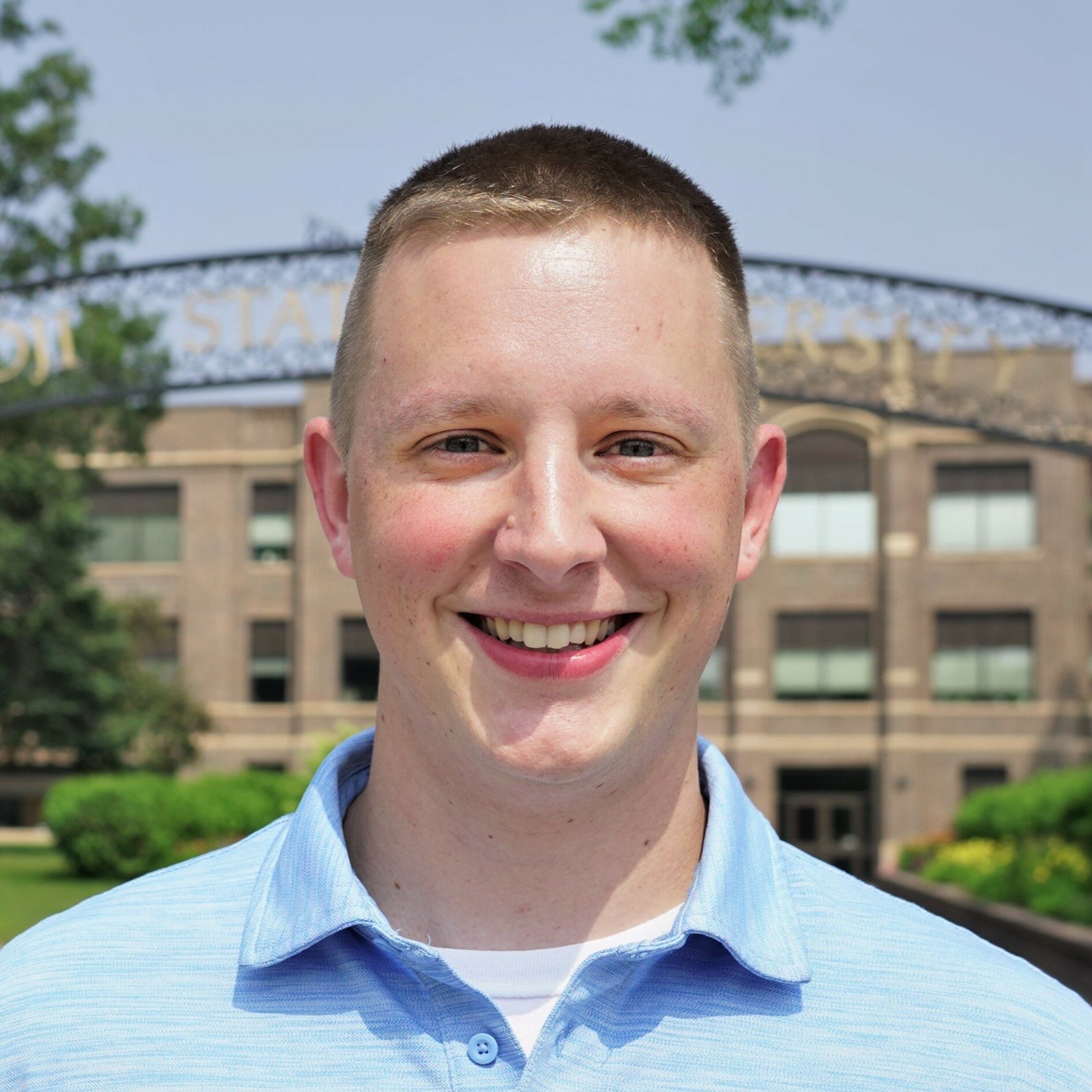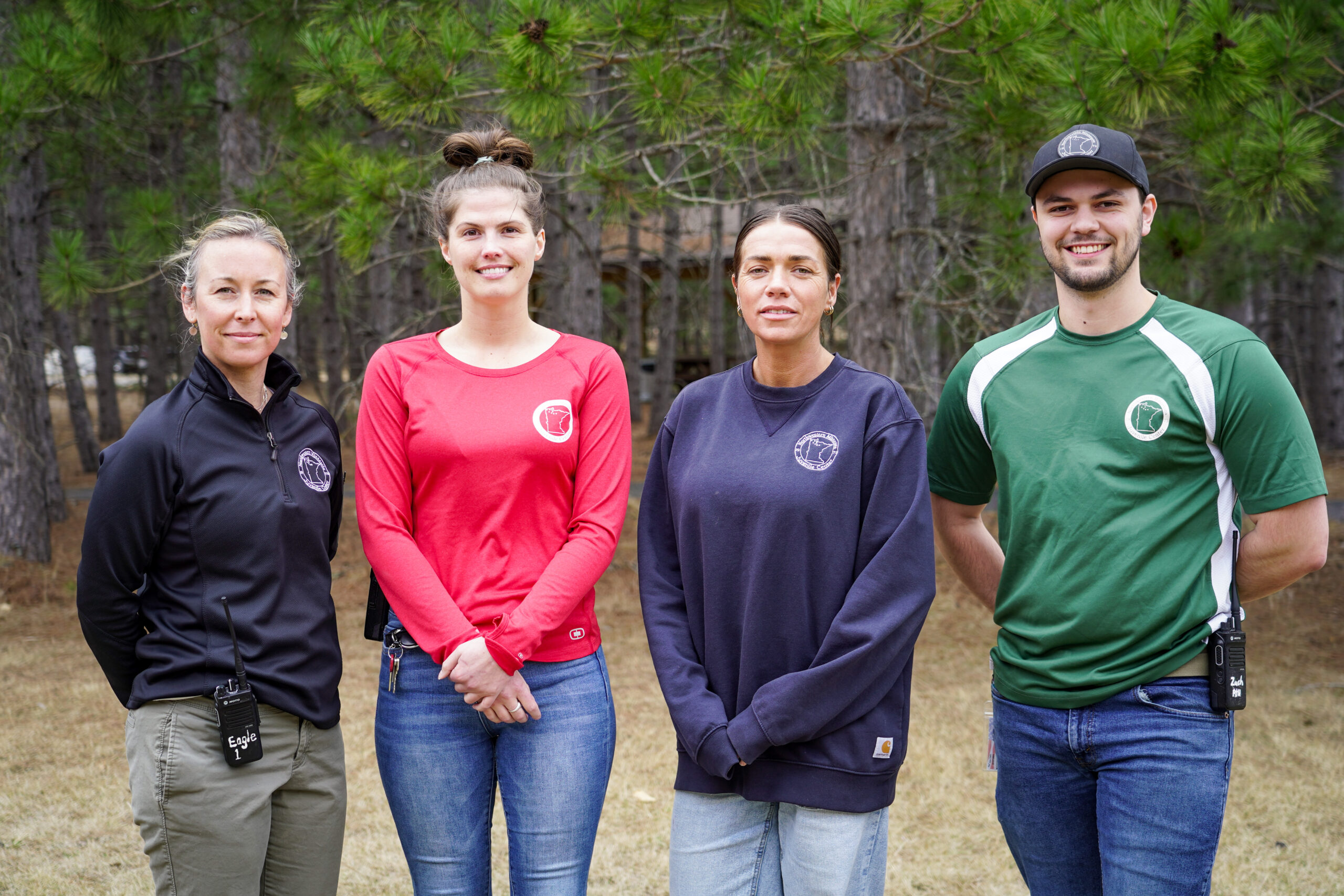Bemidji State grads leading the charge at Northwestern Minnesota Juvenile Center

By Micah Friez
Published 9:05 a.m. on May 24, 2024
The work at the Northwestern Minnesota Juvenile Center in Bemidji is about investing deeply in the youth. And because of the NMJC’s staff – many of whom came through Bemidji State University – those kids can depart better off than when they arrived.
“When you have quality, confident staff, I think the kids feel safer,” said superintendent Mindy O’Brien. “The hard thing for all of us is that when a lot of these kids leave, they’re going back to an environment that doesn’t have that support. … A big part of our staff here is making sure that the kids are supported and building confidence in them so they know they’re worth something when they leave.”
O’Brien is a 2003 BSU graduate, and she and the rest of the staff focus on providing positive intervention within the juvenile justice system. Their services include secure detention, non-secure detention, residential treatment and satellite homes.
In addition to O’Brien, the NMJC has three directors who graduated from Bemidji State – Kaysey Lichtenwalter, Mackenzie Piprude and Zach Hansen. They all took different paths to the center, but they each serve in integral ways.
‘I can reach the kids’
Kaysey Lichtenwalter, the satellite home program director, is a 2007 Bemidji State alumna who earned her degree in design technology. It may seem like an odd fit on the surface, but it’s helped her connect with girls in ways that are almost therapeutic, such as art groups.
“I went to school for a completely different degree than what I’m working in now, but I wouldn’t be able to be in my position without a degree,” she said. “It put me in a position to be qualified for certain jobs within this field.”
Lichtenwalter originally came to Bemidji as an escape from a bad situation in her hometown of Reno, Nev. She never planned to stay in Bemidji, but her part-time job at the juvenile center evolved into an outreach opportunity to help youths who could relate and hopefully learn from her.
“I can reach the kids,” Lichtenwalter said. “I can say, ‘Hey, if I made it, you can make it too. Just because you come from a bad life doesn’t mean you have to have a bad life when you’re older.’ What kept me here were the less fortunate kids of this area.”
Mackenzie Piprude, a 2015 BSU grad, currently serves as the secure detention unit director. She believes in the power of rehabilitation and thrives on the tangible progress she sees at the center.
“I love working with kids. When you can make that connection with them, build a rapport, and they learn to trust you and start to believe in themselves, that’s a beautiful thing to see,” Piprude said. “Especially the kids who are here for a long time. They come in and they’re so broken. And it’s not always a success story for everybody. But by the time they leave, they’re these beautiful individuals who have grown and learned so many new things.”
Piprude majored in social work and minored in psychology at Bemidji State. Similarly to Lichtenwalter, she didn’t expect to work – or stay – at the center. But what started as a simple résumé-builder turned into an ongoing vocation.
“The camaraderie with your coworkers and knowing we’ve got each other’s backs (is special),” Piprude said. “I like working with the kids. Don’t get me wrong, it can be stressful, but it’s so worth it.”
Zach Hansen, the residential treatment program director, took perhaps a more traditional route to the juvenile center as a criminal justice major. He graduated in 2021 with an appreciation for the program’s ability to prepare him for a professional setting.
“They very much instilled in me that deadlines matter,” he said. “In high school, they always said that college didn’t care so much about deadlines, but the criminal justice program at BSU did. They made it for me to make sure I’m on time with everything I do.”
He works with probation officers, social workers and others actively involved in the success of individuals. He’s now the one preparing others for success.
“The meaningful part to me is watching kids come in, being there long-term in our program and watching them change,” he said. “It’s great giving them the skills to be successful when they get out of here and back into the community, then hearing how good some of them are doing when they get out.”
Collaborating with the community
O’Brien’s job is more administrative, but she makes time daily to go to the center’s units and school to be a familiar face for the kids and for the staff. She’s also worked hand-in-hand with her alma mater to create a partnership bridging the two entities.
Coincidentally, the two were closely tied for decades in another way. The NMJC, which first opened in 1973, was housed in Bemidji State’s Birch Hall until 1996. Despite the center now being on the other side of town, O’Brien still wants to foster that cooperative alliance.
“We’ve built a relationship with BSU,” O’Brien said. “They’ve brought some of us into their classrooms to speak to students, but also, they see us as a job opportunity for their students going through as well. … It’s a tie-in in the community. So maybe we’ll get them long-term with our other BSU folks.”
And that’s what it comes back to for O’Brien: getting the right people on board so the kids have just what they need.
“It’s a safer environment when your staff cares about the kids,” O’Brien said. “I think people look at us like we’re just a lockdown: The kids come in, they’re locked in their room, and then they leave eventually. But there’s so much more to it. Each staff member can bring a piece of their own hobby or interests. … They’re educated in a field that will serve the kids.”


